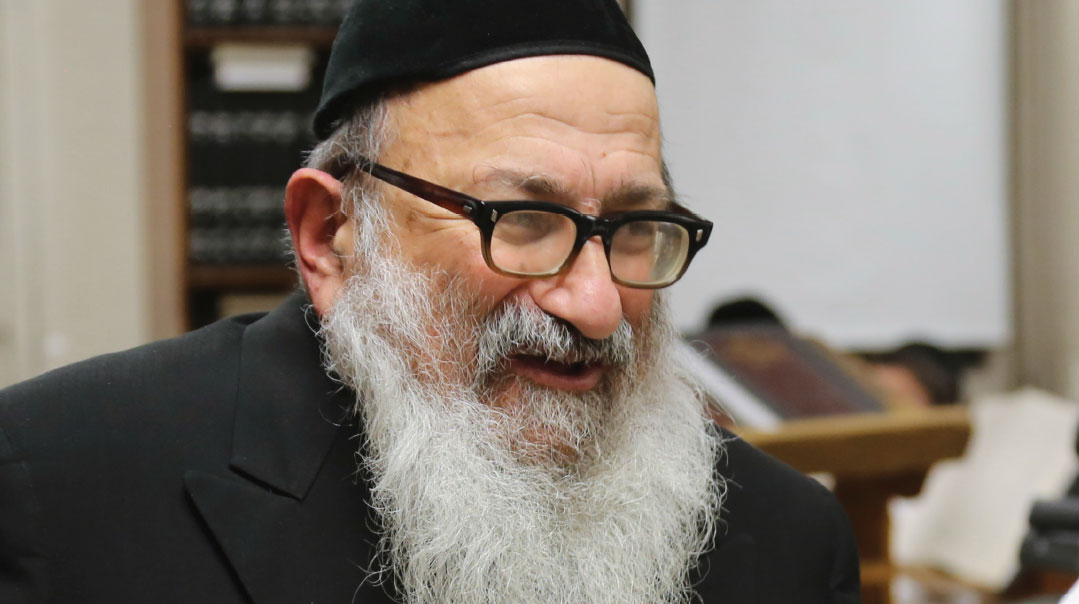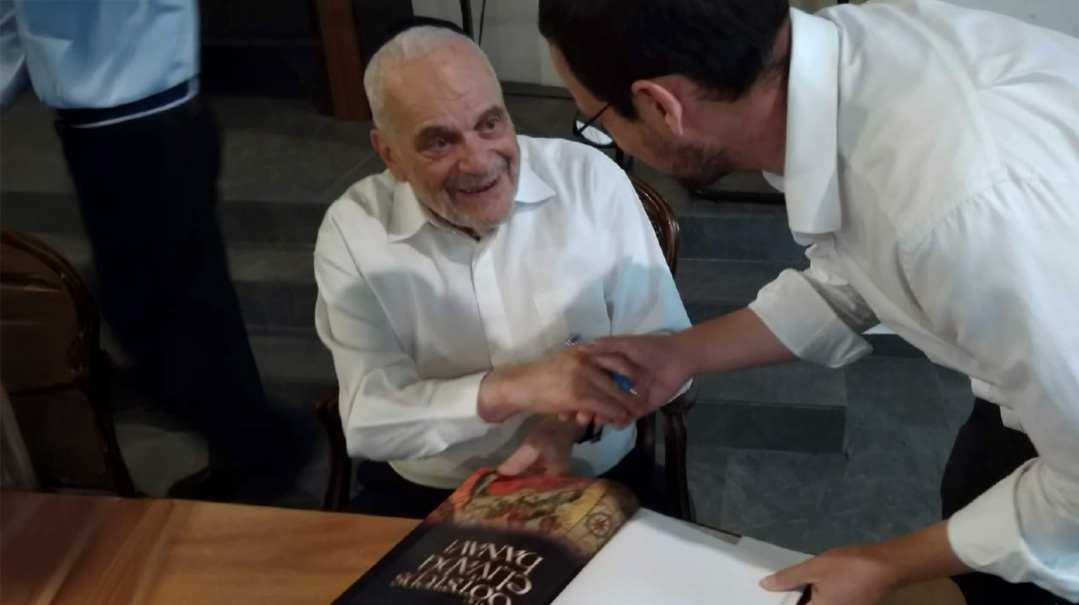Memories Live Forever
| December 11, 2019I am writing this through tears. My rebbi, Rav Avrohom Turin ztz”l, has left us

(photos: abishvidoeproductions.com)
"Grown men do not cry.” Perhaps this adage seems valid to some.
I could never identify with it. Baruch Hashem, over the years I have had happy occasions when I’ve shed tears of joy — births of children, their milestones, weddings, and grandchildren. There have also been sad times, accompanied by the requisite weeping. Typically, the crying after a loss is dependent on the degree. No one is untouched by a passing of a neshamah to its Heavenly abode. But sometimes we are particularly affected because our connection to that individual was special and close.
I am writing this through tears. My rebbi, Rav Avrohom Turin ztz”l, has left us. I cry for myself. He was my rebbi in Scranton, 1969. My moving on to the next shiur a year later caused not the slightest distancing in our relationship. It was a common occurrence that our discussion of something I was learning and struggling to understand became a chavrusa hour. I would simply approach him, and he would schedule time to sit with me to review the entire subject. Not once or twice, but many times, usually late at night, following night seder. Years later, I was married, and my learning continued. From time to time, I shared a chiddush with him by mail. (Remember envelopes, postage stamps?) The rebbi’s replies came back a short time later, letters full of love and parental caring, sometimes his own chiddushei Torah.
Just two years after I learned in Rav Avrohom’s shiur, he became the mashgiach. This extended his role to the entire Scranton yeshivah. Becoming a father to more than 125 talmidim was a feat only he could manage. Aside from always knowing what to say, he had a knack for judging a situation with insight that was predicated on siyata d’Shmaya. I look back at several such episodes in awe.
The first day back after Succos, Rav Avrohom pulled up to the yeshivah office in a new car, not the usual “yeshivishe car.” Several bochurim, including some of his talmidim, were gawking at the sight. They asked where the car came from. Rav Avrohom gave them his classic eye twinkle, and said, “We just learned it in Navi — ‘Yada shor koneihu vachamor eivus be’alav [Yeshayahu 1:3].’ Avis owns this chamor.”
Even those times when it was necessary for him to be disciplinary, it was done with a ne’imus. No one walked away feeling punished, but rather feeling they had received guidance and direction. The goal was to instill a sense of belonging and of being supported. I speak for myself, but I believe all of his talmidim felt that.
I cannot write a hesped. I can cry, and doing so into a microphone is as useless as trying to do this over a piece of paper. But I can reflect on something that is enviable. Rav Avrohom remained my rebbi for 50 years, and our connection never weakened or waned. I have no reason to believe I am unique. That was Rav Avrohom. Just how many rebbeim have talmidim who remain connected to them 50 years later? That speaks volumes about the rebbi. Not only was I connected to him, but he was connected to me. A timeless bond.
There was an experience I must share. Some ten years ago, I was to speak on a panel at a Torah Umesorah convention. Our panel was scheduled to begin at 10:30 p.m. on Thursday night. Several hours earlier, I had been talking with my rebbi, the Mashgiach, and he told me he wanted to share with me a story from Rav Elya Meir Bloch ztz”l, his rosh yeshivah from Telshe. But we were each pulled in different directions, either going to dinner or another presentation.
Fast-forward: My panel actually started after 11:15, and despite the late hour, both the Mashgiach and ybdlcht”a the Rosh Yeshivah, Rav Chaim Bressler, were in the audience. Aside from feeling honored at their presence, I was keenly aware that this was apropos for them. Their talmid was like their own child. What parents would pass up an opportunity to attend their son’s public performance? That is chinuch.
To my dismay, I was the last speaker on the panel, and those who went first seemed oblivious of the hour. I got to the podium at 1 a.m. Yes, my rebbeim were both still there. I rushed through my presentation, and took the requisite questions after finishing. As I left to go to my room, the Mashgiach was waiting for me. It was now 1:20 a.m., and he just had to keep his promise to share the story of Rav Elya Meir Bloch. Although I was quite some years younger, I could barely stay awake. Sadly, I was way too tired to record what that story was, nor do I recall the subject we were discussing. But the impact of the parental love is still alive and well. Memories of the departed, especially emotional ones, never expire.
As an alumnus of Yeshivah Bais Moshe, I seldom missed the yearly dinners in New York. The few times the Mashgiach did not attend were sad experiences for me. We always managed to spend time together, and proved that the calendar did not affect our kesher in the slightest.
Just two weeks before Rosh Hashanah I drove to Scranton, and sat with the Mashgiach in his home for a few hours. Aside from his health, nothing had changed. His huge heart and mind were baruch Hashem intact, and aging was not detectable. I returned to my car, cried, and drove home. Seeing him frail and suffering was hard to bear. Yes, I cried for my own pain. But my tefillos were for him. Klal Yisrael needs Rav Avrohom, and his talmidim from over a half of a century need him.
The loss is huge. It is my memories that stay with me, and I know he takes the needs of all his talmidim to the Kisei Hakavod where he will intercede on our behalf.
Yehei zichro baruch.
(Originally featured in Mishpacha, Issue 789)
Oops! We could not locate your form.













